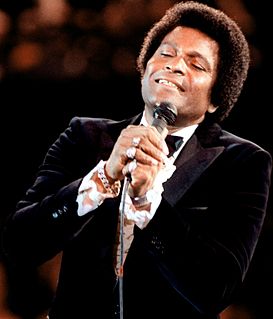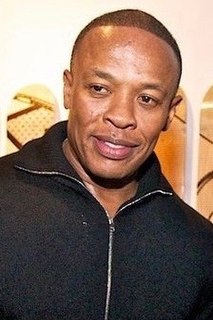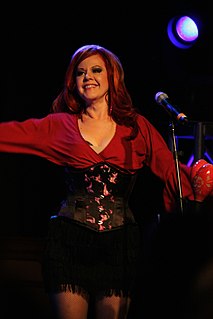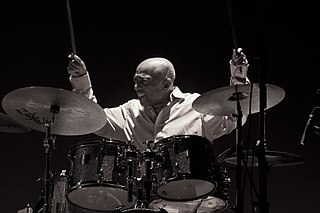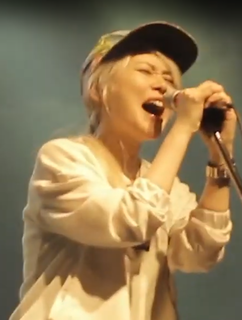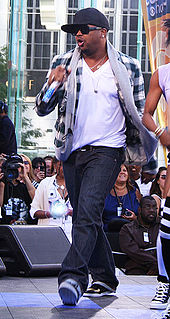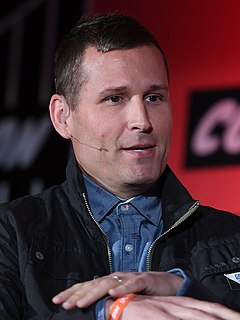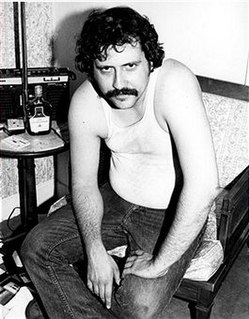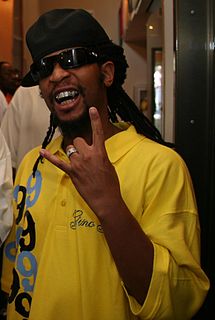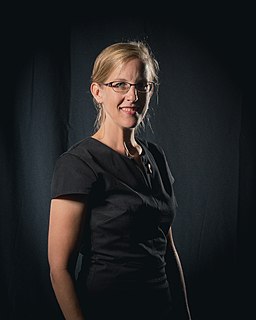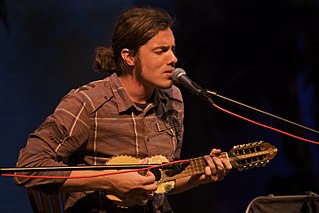A Quote by Charley Pride
It used to be that if you had a pretty good record, you could stop by a station in Little Rock or Atlanta and let the DJ listen to it. No way something like that can happen now.
Related Quotes
Wreckin' Cru was a DJ crew. They used to call it that because it was the guys that came in after the party was over and broke down the equipment. We eventually made a record, and we had the costumes on and what have you. Back then, everybody had their little getups, you know, like SoulSonic Force, UTFO.
When I'm representing my music live I think of it very much in a rock band sense. When I first started doing festivals in the 90s there really weren't other DJs playing the stages I was playing. So I felt I was being afforded an opportunity to kind of make a statement about what DJ music can be live. In the 90s, if you were a DJ you were in the dance tent, and you were playing house music and techno music. There was no such thing as a DJ - a solo DJ - on a stage, after a rock band and before another rock band: that just didn't happen.
There was a lot that was tricky about playing with [Thelonious Monk]. It's a musical language where there's really no lyrics. It's something you feel and you're hearing. It's like an ongoing conversation. You really had to listen to this guy. Cause he could play the strangest tempos, and they could be very in-between tempos on some of those compositions. You really had to listen to his arrangements and the way he would play them. On his solos, you'd really have to listen good in there. You'd have to concentrate on what you were doing as well.
I DJ'd for years. I DJ'd in high school, and I think my parents thought it was a passing thing. And then when I was in my second year of college, I was like, 'Yeah, you guys don't need to send me money anymore. My DJ gigs are good enough. I'm selling music; I think I'm gonna have a record deal. I can pay my tuition.'
Good rock 'n' roll is something that makes you feel alive. It's something that's human, and I think that most music today isn't. ... To me good rock 'n' roll also encompasses other things, like Hank Williams and Charlie Mingus and a lot of things that aren't strictly defined as rock 'n' roll. Rock 'n' roll is an attitude, it's not a musical form of a strict sort. It's a way of doing things, of approaching things. Writing can be rock 'n' roll, or a movie can be rock 'n' roll. It's a way of living your life.
That is very different from how it used to be in the 20th century. Media was very one way. There's a small little industry. It broadcasted its message and everyone else in the world just had to listen. Now the internet is allowing what used to be a monologue to become a dialogue. I think that's healthy and actually restoring a more natural way.
I don't happen to like pretty things. I don't like pretty dresses. I like more attractive. I like people that look a little bit more offbeat. I don't like the classic pretty face. That doesn't mean it's not pretty or it's not wonderful, and most people don't agree with me, but that's the way I think.
It wasn't just like, "I want to make a record that sounds like classic rock" at all. It was more like, "I want to make a record that is a little more unsettling and maybe isn't as easily understood now." That just seemed more important, like, for me to make as an artist, than it was to make something to make people feel safe right away.
